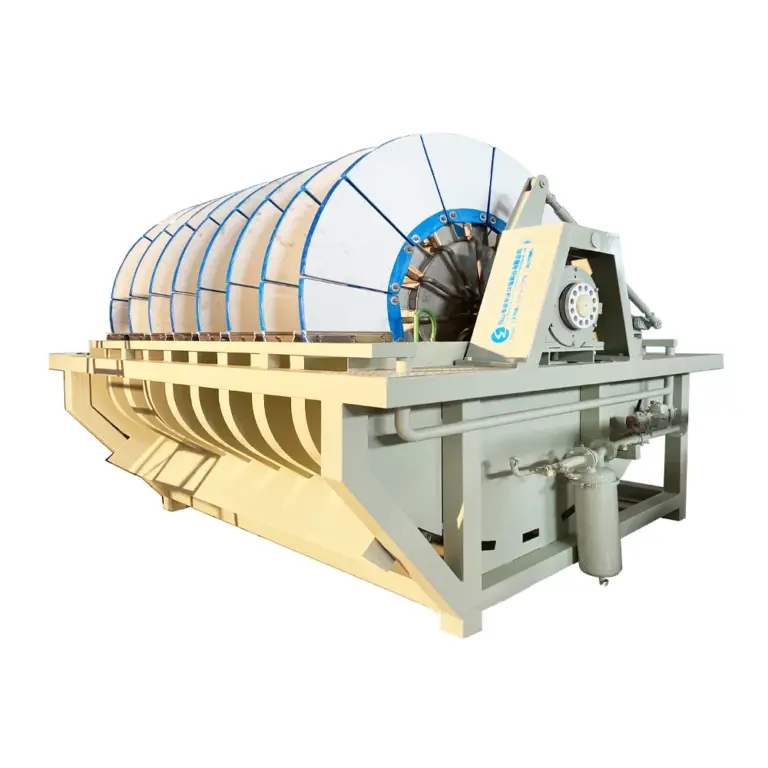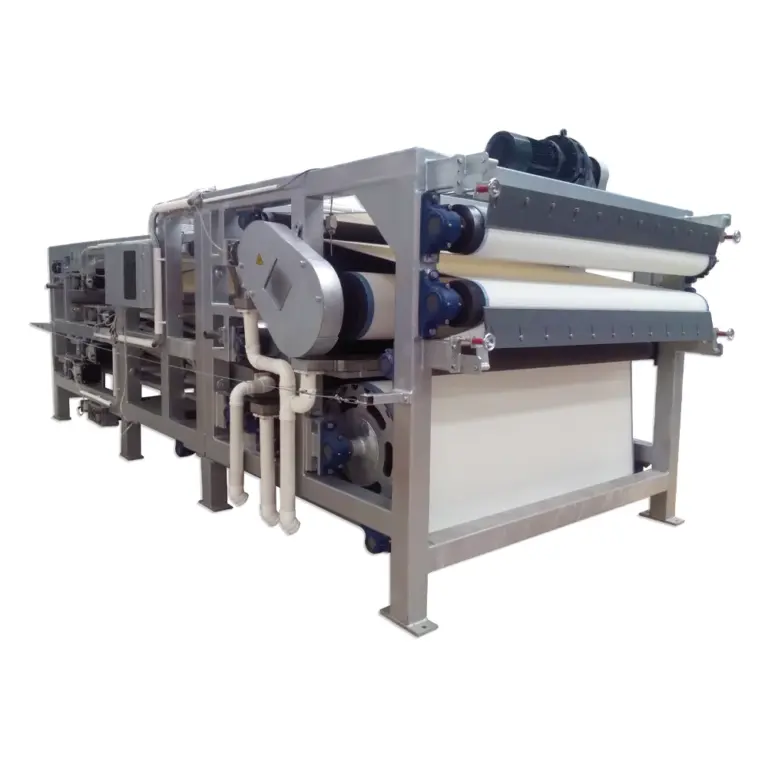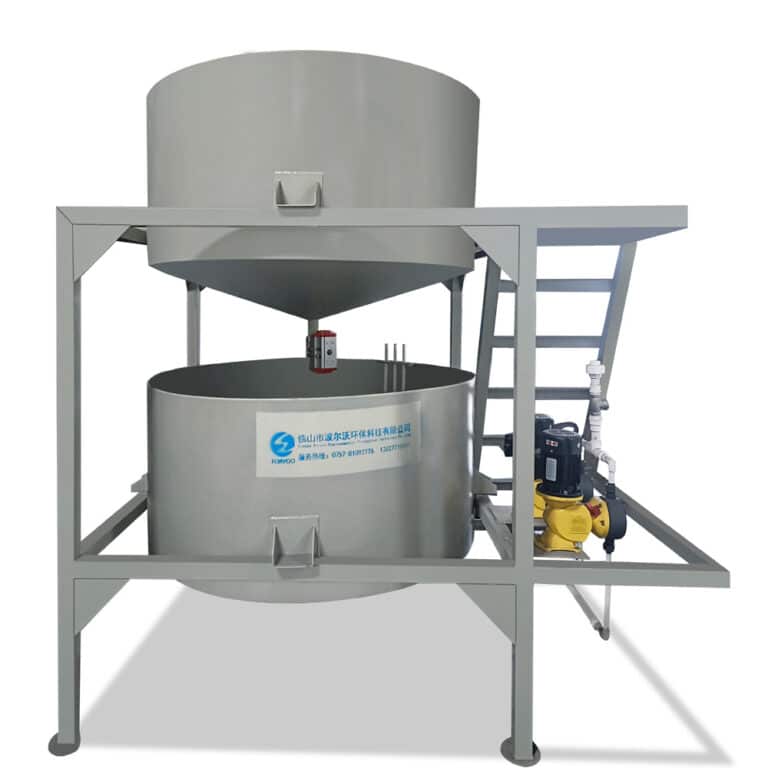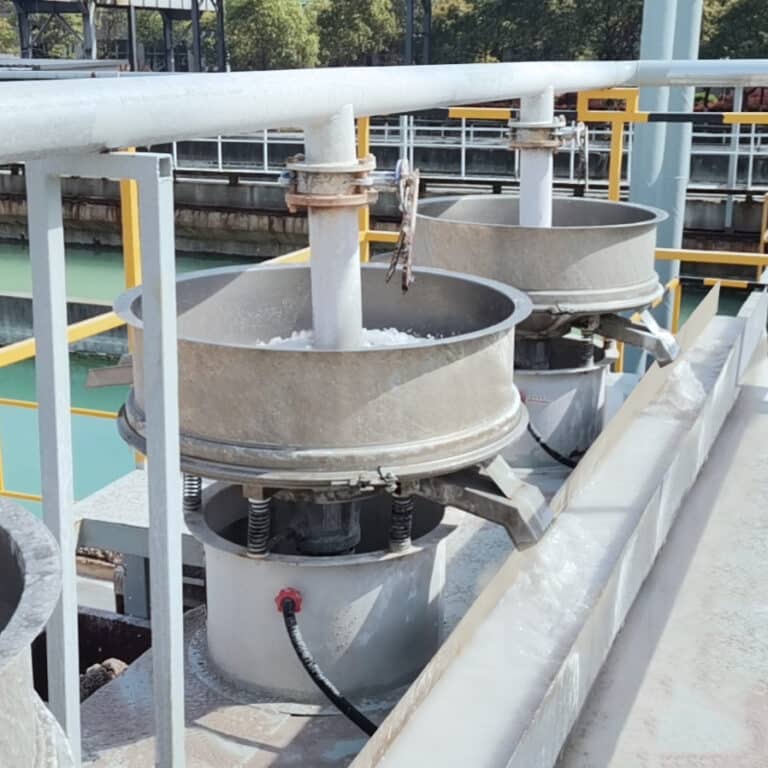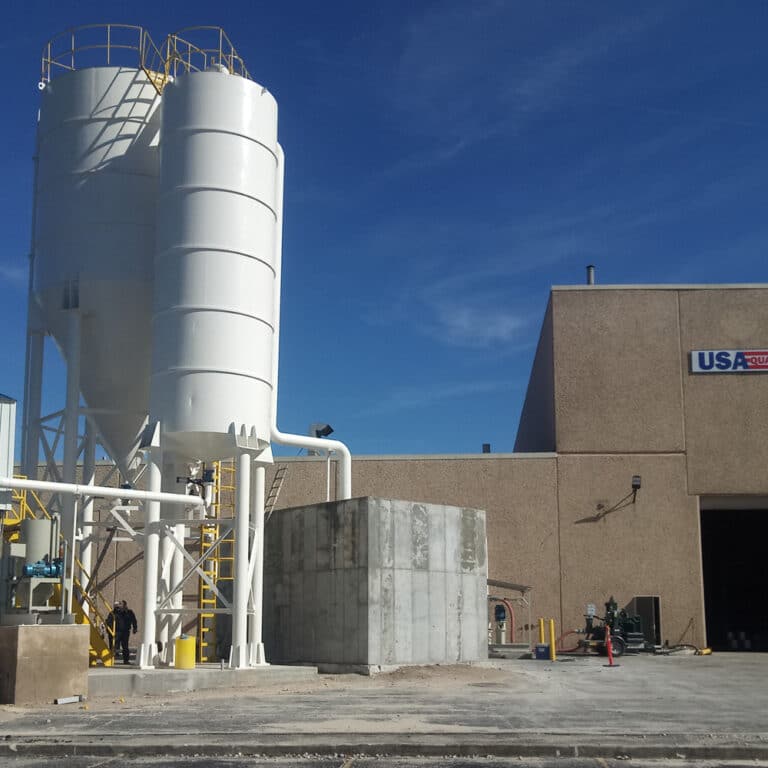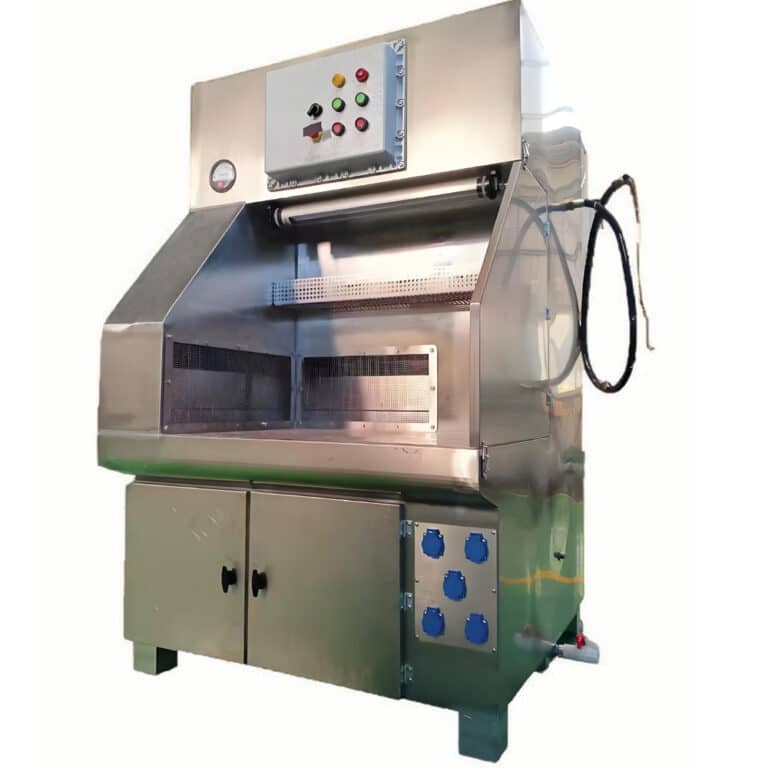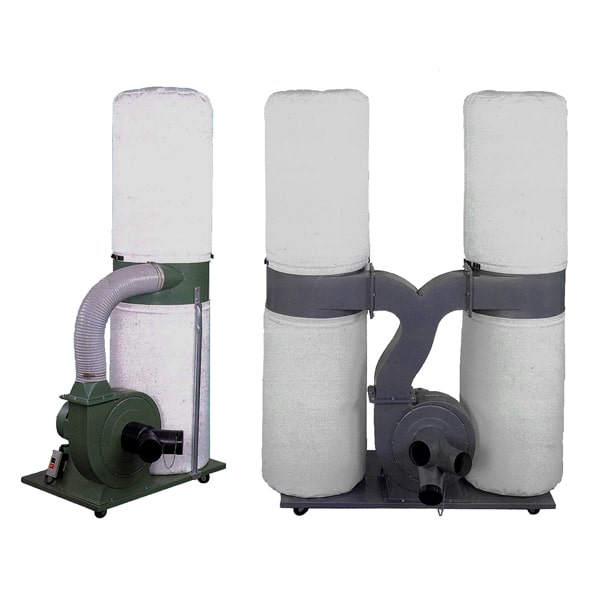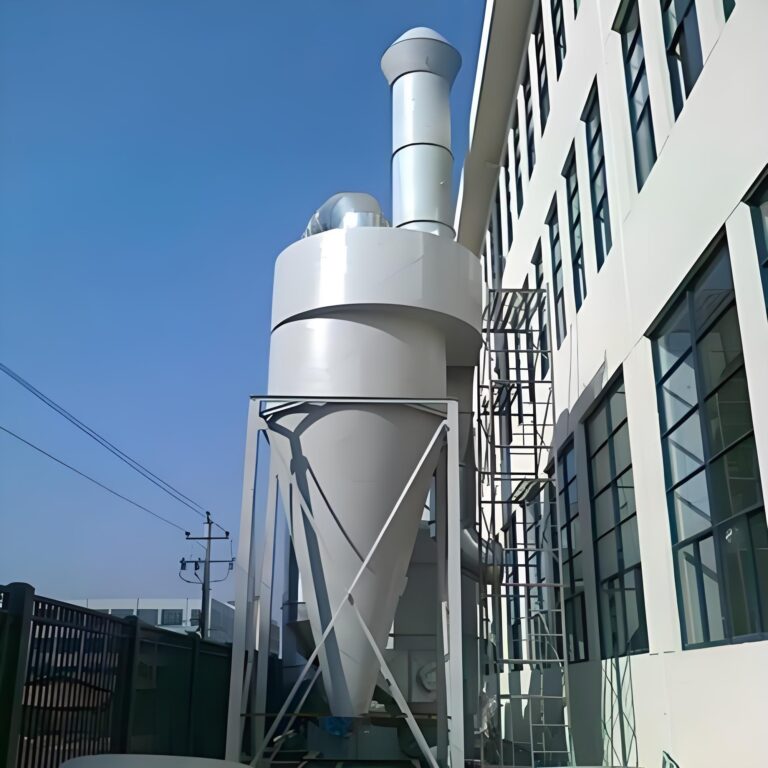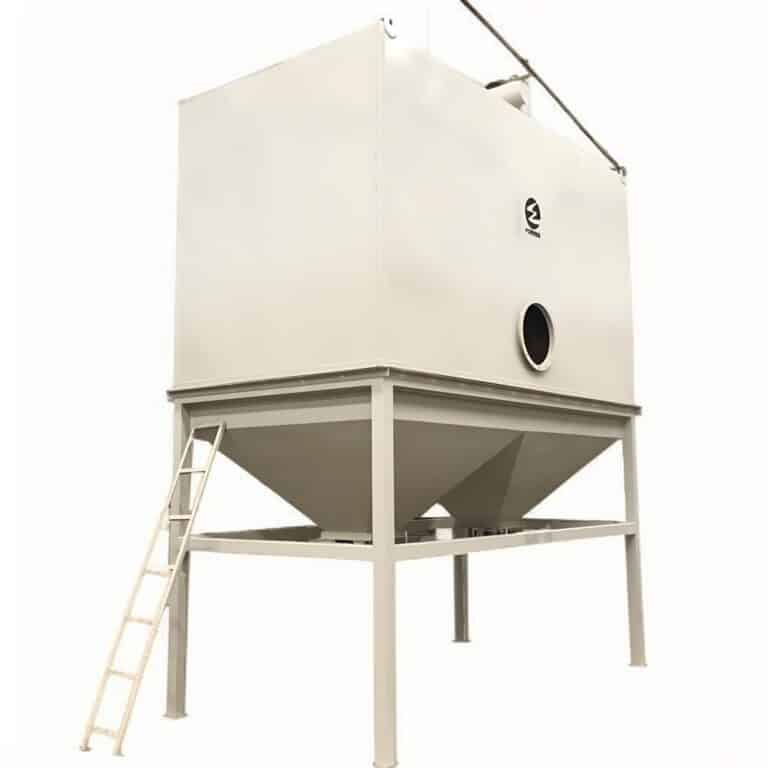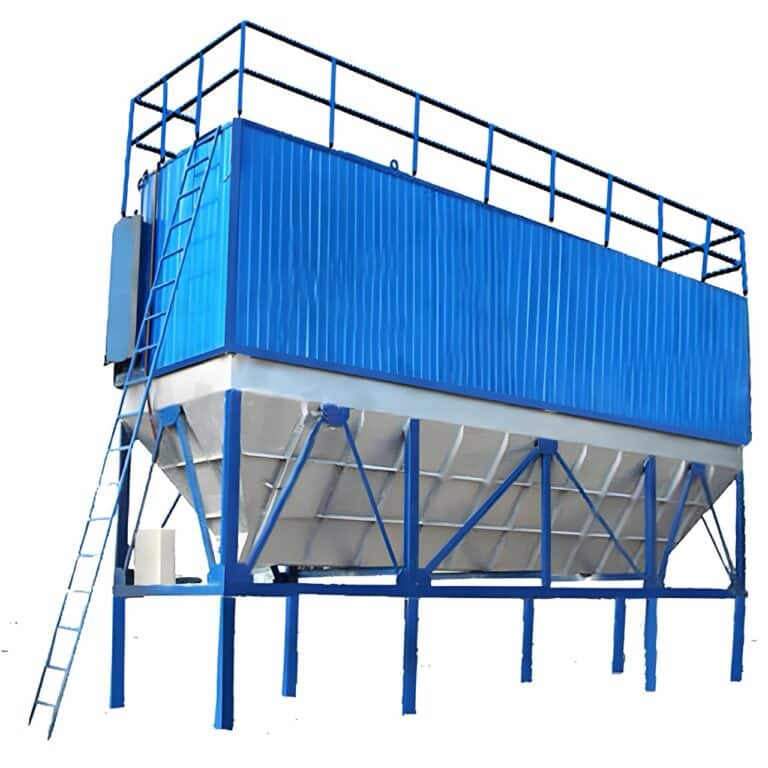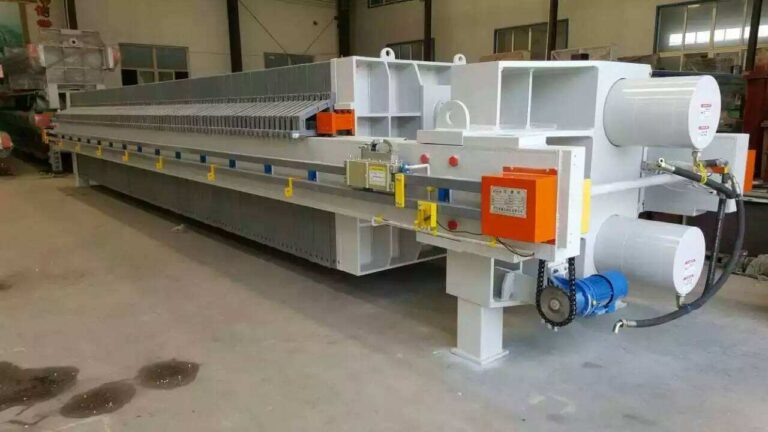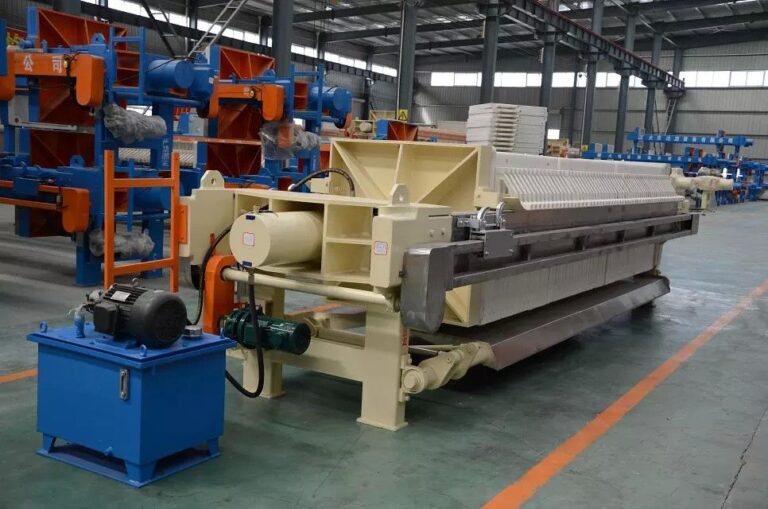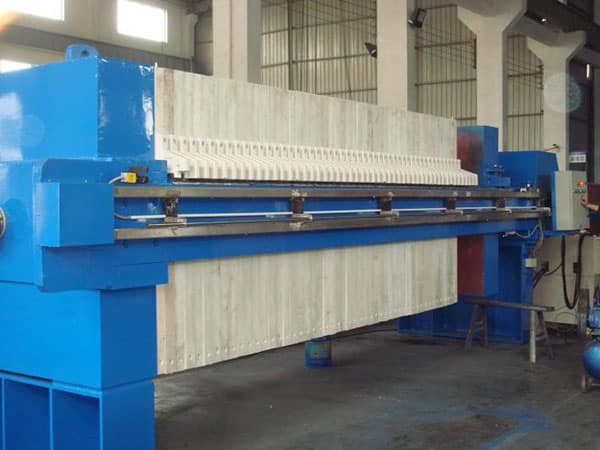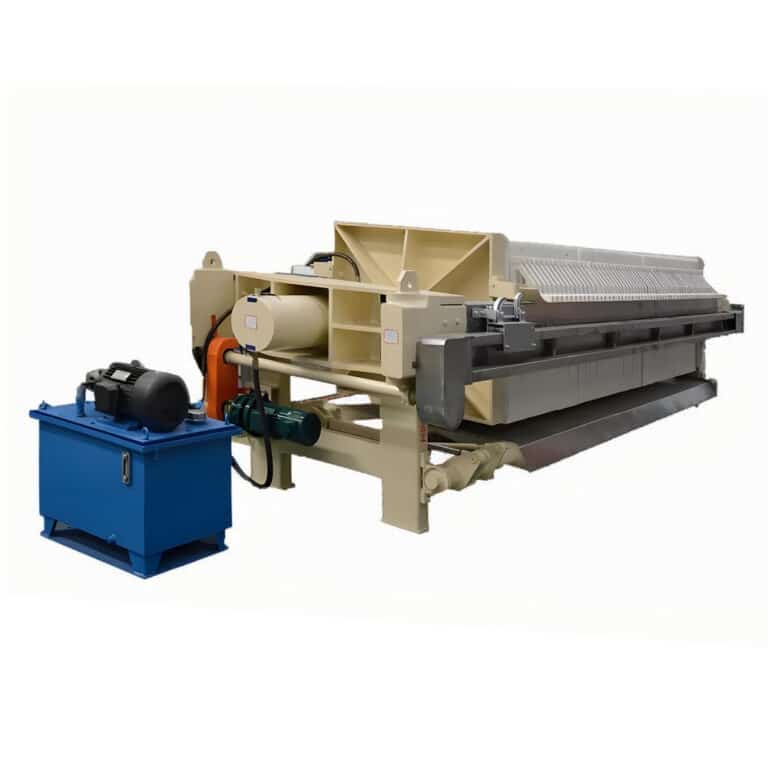In the realm of industrial waste management, the quest for efficient and environmentally friendly solutions has never been more critical. Enter the world of zero waste membrane filter press solutions, a cutting-edge technology that's revolutionizing how industries handle their waste. These innovative systems are designed to maximize filtration efficiency while minimizing environmental impact, making them a game-changer in the pursuit of sustainable industrial practices.
As industries face increasing pressure to reduce their ecological footprint, membrane filter presses have emerged as a beacon of hope. These advanced filtration systems offer a unique combination of high-performance dewatering capabilities and waste reduction potential. By employing a flexible membrane to exert uniform pressure on filter cakes, these presses can achieve remarkably low moisture content in the final product, significantly reducing the volume of waste that needs to be disposed of or treated further.
The journey towards zero waste in industrial processes is complex, but membrane filter presses are paving the way for a cleaner, more sustainable future. From wastewater treatment plants to chemical manufacturing facilities, these versatile machines are proving their worth across a wide range of applications. As we delve deeper into the world of membrane filter press waste reduction, we'll explore the technology behind these systems, their myriad benefits, and the industries that stand to gain the most from their implementation.
"Membrane filter presses represent a significant leap forward in waste reduction technology, offering up to 50% higher solid content in filter cakes compared to traditional filter presses, resulting in substantial reductions in waste volume and disposal costs."
How Do Membrane Filter Presses Work?
At the heart of every membrane filter press lies a sophisticated mechanism designed to separate solids from liquids with unprecedented efficiency. But how exactly do these marvels of engineering accomplish this feat? The process begins with the introduction of slurry into the filter chambers, where it encounters filter cloths that allow liquids to pass through while retaining solid particles. What sets membrane filter presses apart is the addition of a flexible membrane within each chamber.
Once the filtration cycle begins, this membrane inflates, applying uniform pressure across the entire surface of the filter cake. This even distribution of pressure is key to achieving optimal dewatering results. As the membrane expands, it squeezes out additional moisture from the filter cake, resulting in a drier final product than what traditional filter presses can achieve.
The ability of membrane filter presses to produce exceptionally dry filter cakes is not just a technical achievement; it's a game-changer for waste reduction efforts. Drier cakes mean less volume to handle, transport, and dispose of, translating directly into cost savings and reduced environmental impact for industries utilizing this technology.
"The unique membrane squeezing action in PORVOO's membrane filter presses can reduce filter cake moisture content by up to 30% compared to conventional presses, significantly decreasing the volume of waste that requires further processing or disposal."
| Feature | Benefit |
|---|---|
| Flexible membrane | Uniform pressure distribution |
| Enhanced dewatering | Higher solid content in filter cakes |
| Reduced cake moisture | Lower waste volume and disposal costs |
By leveraging the power of membrane technology, these filter presses are not just separating solids from liquids; they're setting new standards for efficiency and sustainability in industrial filtration processes.
What Industries Benefit Most from Membrane Filter Press Technology?
The versatility of membrane filter press technology makes it an invaluable asset across a wide spectrum of industries. From heavy industrial applications to more delicate processes, these advanced filtration systems are finding their place in numerous sectors. But which industries stand to gain the most from implementing membrane filter presses in their operations?
One of the most significant beneficiaries is the wastewater treatment industry. Municipal and industrial wastewater treatment plants are constantly seeking ways to improve their sludge dewatering processes, and membrane filter presses offer a solution that not only enhances efficiency but also reduces the volume of sludge that requires disposal. This translates to lower transportation costs and a reduced burden on landfills.
The mining and mineral processing sector is another area where membrane filter presses shine. These industries generate vast amounts of slurry that need to be dewatered efficiently. By employing membrane filter presses, mining operations can achieve higher solid content in their filter cakes, making material handling easier and more cost-effective.
"In the chemical manufacturing industry, membrane filter presses have demonstrated the ability to increase solid recovery rates by up to 98%, significantly reducing product loss and minimizing waste generation."
| Industry | Key Benefit |
|---|---|
| Wastewater Treatment | Improved sludge dewatering |
| Mining | Higher solid content in mineral concentrates |
| Chemical Manufacturing | Increased product recovery |
| Food & Beverage | Enhanced filtration for purer products |
From food and beverage production to pharmaceutical manufacturing, the applications of membrane filter presses are as diverse as they are impactful. These industries benefit not only from the waste reduction capabilities of the technology but also from the improved product quality that comes with more efficient filtration processes.
What Are the Environmental Benefits of Implementing Membrane Filter Press Solutions?
In an era where environmental consciousness is paramount, membrane filter press solutions stand out as a beacon of sustainability in industrial processes. The environmental benefits of implementing these advanced filtration systems are numerous and far-reaching, extending well beyond the immediate reduction in waste volume.
First and foremost, the ability of membrane filter presses to produce drier filter cakes leads to a significant decrease in the amount of waste that needs to be transported and disposed of. This reduction in waste volume translates directly into fewer truck trips to landfills or treatment facilities, resulting in lower carbon emissions associated with waste management.
Moreover, the enhanced efficiency of membrane filter presses means that industries can recover more valuable materials from their waste streams. This not only reduces the demand for raw materials but also minimizes the environmental impact of resource extraction and processing.
"By implementing membrane filter press waste reduction technologies, some industries have reported up to a 40% decrease in their overall waste disposal costs, coupled with a 30% reduction in their carbon footprint related to waste management activities."
| Environmental Aspect | Impact of Membrane Filter Presses |
|---|---|
| Waste Volume | Reduced by up to 50% |
| Carbon Emissions | Decreased due to less transport |
| Resource Recovery | Improved by up to 98% |
| Water Conservation | Enhanced through better filtration |
The water conservation aspect of membrane filter presses cannot be overstated. By achieving higher levels of solid-liquid separation, these systems allow for greater water recovery and reuse within industrial processes. This is particularly crucial in water-intensive industries or regions facing water scarcity issues.
How Do Membrane Filter Presses Compare to Traditional Filtration Methods?
When it comes to solid-liquid separation, the choice of filtration technology can make a significant difference in operational efficiency and environmental impact. Membrane filter presses have emerged as a superior alternative to traditional filtration methods in many applications, but what exactly sets them apart?
Traditional filter presses, while effective, often struggle to achieve the same level of dewatering efficiency as their membrane counterparts. The key difference lies in the membrane's ability to apply uniform pressure across the entire filter cake. This results in more consistent and thorough dewatering, producing filter cakes with significantly lower moisture content.
Cycle times are another area where membrane filter presses excel. The inflatable membrane allows for quicker and more complete cake release, reducing the time required between filtration cycles. This increased efficiency translates to higher throughput and lower operational costs.
"Studies have shown that membrane filter presses can reduce filtration cycle times by up to 50% compared to conventional filter presses, while simultaneously increasing the dry solids content of filter cakes by 10-15%."
| Feature | Traditional Filter Press | Membrane Filter Press |
|---|---|---|
| Dewatering Efficiency | Good | Excellent |
| Cycle Time | Longer | Shorter |
| Cake Moisture Content | Higher | Lower |
| Operational Flexibility | Limited | High |
The Membrane filter press waste reduction solutions offered by companies like PORVOO also provide greater operational flexibility. The ability to adjust membrane pressure allows operators to fine-tune the filtration process for different types of slurries or desired outcomes, a level of control not typically available with traditional filter presses.
What Maintenance Considerations Are Unique to Membrane Filter Presses?
While membrane filter presses offer numerous advantages in terms of efficiency and waste reduction, they also come with their own set of maintenance considerations. Understanding these unique aspects is crucial for ensuring the longevity and optimal performance of these sophisticated filtration systems.
One of the primary maintenance focuses for membrane filter presses is the integrity of the membrane itself. Regular inspections are necessary to check for any signs of wear, tear, or damage that could compromise the press's efficiency. The flexible nature of the membrane, while beneficial for filtration, also means it's subject to more stress than the rigid components of traditional filter presses.
Another crucial aspect is the cleanliness of the filter cloths and plates. The high-pressure environment created by the membrane can lead to more compacted filter cakes, potentially making the cleaning process more intensive. However, this is often balanced by the fact that membrane filter presses typically require less frequent cleaning due to their more efficient operation.
"Proper maintenance of membrane filter presses can extend their operational lifespan by up to 25% compared to poorly maintained units, with some high-quality membranes lasting for over 10,000 filtration cycles when cared for correctly."
| Maintenance Aspect | Frequency | Impact on Performance |
|---|---|---|
| Membrane Inspection | Monthly | Critical for efficiency |
| Filter Cloth Cleaning | After each batch | Ensures consistent filtration |
| Hydraulic System Check | Quarterly | Maintains optimal pressure |
| Plate Alignment | Annually | Prevents leaks and uneven wear |
Hydraulic systems, which are integral to the operation of membrane filter presses, require regular checks and maintenance to ensure they can provide the necessary pressure for optimal filtration. This includes monitoring hydraulic fluid levels and quality, as well as checking for any leaks in the system.
How Can Industries Optimize Their Processes for Maximum Waste Reduction with Membrane Filter Presses?
Optimizing industrial processes for maximum waste reduction with membrane filter presses requires a strategic approach that goes beyond simply installing the equipment. It involves a comprehensive review of the entire filtration process and implementing best practices to leverage the full potential of this advanced technology.
One key strategy is to carefully analyze the characteristics of the slurry being processed. Different materials require different filtration parameters, and membrane filter presses offer the flexibility to adjust pressure, cycle times, and other variables to achieve optimal results. By fine-tuning these settings, industries can maximize solid recovery and minimize waste generation.
Pre-treatment of slurries can also play a crucial role in optimizing membrane filter press performance. Techniques such as flocculation or pH adjustment can improve the filterability of certain materials, leading to drier filter cakes and more efficient separation.
"Industries that have implemented comprehensive optimization strategies for their membrane filter press operations have reported waste volume reductions of up to 60% and a 25% increase in valuable material recovery from process streams."
| Optimization Strategy | Potential Impact |
|---|---|
| Slurry Analysis | 15-20% improvement in filtration efficiency |
| Pre-treatment | Up to 30% reduction in cake moisture content |
| Process Integration | 20-25% increase in overall waste reduction |
| Continuous Monitoring | 10-15% improvement in operational efficiency |
Integrating membrane filter presses into a broader waste reduction strategy can yield even greater benefits. This might involve implementing closed-loop systems where filtered water is reused in the process, or finding innovative ways to repurpose or recycle the filter cakes produced.
What Future Developments Can We Expect in Membrane Filter Press Technology?
As industries continue to push the boundaries of efficiency and sustainability, the future of membrane filter press technology looks incredibly promising. Innovations in materials science, automation, and data analytics are set to take these already powerful waste reduction tools to new heights.
One area of development is in the membranes themselves. Researchers are exploring new materials that could offer even greater durability and flexibility, potentially extending the lifespan of membrane filter presses and improving their performance across a wider range of applications. Smart membranes that can adapt their properties based on the material being filtered are also on the horizon.
Automation and Industry 4.0 technologies are set to play a significant role in the evolution of membrane filter presses. Advanced sensors and machine learning algorithms could enable real-time optimization of filtration parameters, ensuring peak performance and maximum waste reduction at all times.
"Industry experts predict that next-generation membrane filter presses could achieve up to 75% reduction in waste volume compared to current models, with intelligent systems capable of reducing energy consumption by 30% through optimized operation."
| Future Development | Expected Impact |
|---|---|
| Smart Membranes | 20-25% improvement in filtration efficiency |
| AI-driven Optimization | Up to 30% reduction in operational costs |
| Nanomaterial Integration | 15-20% increase in solid recovery rates |
| Sustainable Materials | 50% reduction in environmental footprint |
The integration of nanomaterials into filter media and membranes is another exciting prospect. These advanced materials could revolutionize the filtration process, offering unprecedented levels of selectivity and efficiency in solid-liquid separation.
As we look to the future, it's clear that membrane filter press technology will continue to evolve, offering even greater benefits in terms of waste reduction, resource recovery, and environmental sustainability. Industries that stay abreast of these developments and are willing to invest in cutting-edge solutions will be well-positioned to meet the challenges of a resource-constrained world.
Conclusion
The journey through the world of zero waste membrane filter press solutions reveals a technology that's not just keeping pace with industrial needs but actively shaping a more sustainable future. From their sophisticated operation to their wide-ranging applications across various industries, membrane filter presses are proving to be indispensable tools in the quest for efficient waste reduction and resource recovery.
The environmental benefits of implementing these advanced filtration systems are clear and compelling. By significantly reducing waste volumes, improving resource recovery rates, and minimizing the carbon footprint associated with waste management, membrane filter presses are helping industries align their operations with global sustainability goals.
The comparison with traditional filtration methods highlights the superior performance of membrane filter presses in terms of dewatering efficiency, cycle times, and operational flexibility. While they do come with unique maintenance considerations, the benefits far outweigh the challenges, especially when proper care and optimization strategies are employed.
Looking ahead, the future of membrane filter press technology is bright, with innovations promising even greater efficiencies and capabilities. As industries continue to grapple with the dual challenges of increasing production demands and stricter environmental regulations, membrane filter presses stand out as a solution that addresses both concerns simultaneously.
In conclusion, zero waste membrane filter press solutions represent a significant leap forward in industrial waste management. By embracing this technology and continually seeking ways to optimize its use, industries can not only reduce their environmental impact but also improve their operational efficiency and bottom line. As we move towards a more sustainable industrial future, membrane filter presses will undoubtedly play a crucial role in shaping cleaner, more efficient production processes across the globe.
External Resources
Membrane Filter Press – Micronics Engineered Filtration Group – This resource explains how membrane filter presses work, their key advantages, and their applications in various industries, including wastewater treatment. It highlights their ability to produce drier filter cakes, reduce liquid waste, and minimize environmental impact.
Application environment and waste water – MSE Filterpressen® – This page details the use of membrane filter presses in wastewater treatment, sludge dewatering, and other industrial processes. It emphasizes the efficiency and environmental benefits of these presses, including higher dry matter content and reduced waste volume.
Enhancing Efficiency and Sustainability with Membrane Filter Press – This blog post from Sachin Industries Ltd. discusses how membrane filter presses enhance efficiency and sustainability in industrial processes. It covers their applications in sectors like chemical, pharmaceutical, and wastewater treatment, and how they reduce waste and promote environmental sustainability.
The Role of Filter Presses in Wastewater Treatment – Although this article is broader and covers various types of filter presses, it includes a section on membrane filter presses and their role in wastewater treatment. It explains the process of sludge dewatering, slurry separation, and other functions in wastewater treatment.
Membrane Filter Press – Used in Various Industries – This resource provides an in-depth look at how membrane filter presses are used across different industries, including mining, pharmaceuticals, and food and beverage. It outlines the process stages and the benefits of using membrane filter presses for solid-liquid separation.
MSE Filterpressen® for Your Success – This page focuses on the efficiency and high capacities of MSE filter presses, particularly the membrane type. It discusses their use in removing industrial and process wastewater, and the benefits of fully automatic designs for fast cycle times and high capacities.
